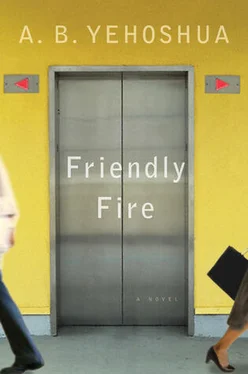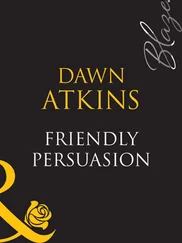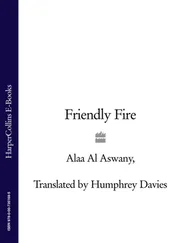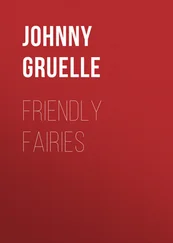She asks the cooks if there might be a little transistor radio in the kitchen to link her to the wider world, and although they understand her request, they have no such device, but they promise her that the scientists arriving from the excavation site will be able to furnish her with up-to-date news. Out there in the canyon stands a big dish that collects stories of everything interesting and important in the world. However, in the meantime, she will have to do without connection to the world.
But what she cannot ignore is a worsening headache. Is it just an ordinary headache, or a symptom of the high blood pressure that she first developed after her sister's death? The family doctor was not overly impressed and saw it mainly as an emotional reaction, so rather than prescribe a daily medicine he recommended a daily walk and weight loss, and instructed Amotz to monitor his wife's pressure now and then.
A daily walk and losing weight do not much appeal to a woman disinclined to accept physical limitations on her free will. It's easier to roll up a sleeve and extend a bare arm to her husband, so he can strap the cuff around it and assure her that her sensations are harmless. But here on a remote farm in Africa, she must rely only on herself, and since two blood pressure pills are taped to her passport, there's no reason not to swallow one of them and bring the other back to Israel. She heads to her room, to her passport.
But before taking the pill, she decides to have a few words with the Sudanese nurse. Surely Sijjin Kuang must have an instrument like her husband's. She returns to the kitchen, where the cooks direct her to the camp clinic, a small shack in back of the main building that in colonial days had been a stable for horses. There she finds the Sudanese asleep on the mat-covered floor, wrapped in a black robe, her long body folded like a giant bird's. Without waking her, Daniela glances around the modest infirmary, which reminds her of the one at the school where she teaches. A glassed-in cupboard holds rows of jars and bandages and adhesives, syringes and bottles of disinfectant. On a small table lie a stethoscope and a number of gleaming instruments for probing the orifices of the human body, and there in the corner hangs the blood-pressure machine.
The sleeping nurse-driver is clearly recovering from her navigational adventures of the night before. Daniela quietly retreats to wait on a bench outside. Her headache has not let up; the little pill her husband gave her is tucked in her hand, and she wonders if she should just swallow it and do without the checkup. But she has the feeling that the touch of Sijjin's velvety desert fingers might do her even more good than the strong hand of her husband.
She closes her eyes, allowing the peaceful hum of nature to ease her pain a bit. Aromas from the kitchen flow to her through the pure, clear air. Her distaste for kitchen work always rouses her dormant female guilt, so she changes position, lying down on the hard bench and folding her hands beneath her head as a pillow. It can't be that Shuli hid things from her. After the tragedy she would call her sister two or three times a day to give emotional support and have long heart-to-heart talks. Had Shuli known, found out even indirectly, that Yirmi had spent a night on the roof of a Palestinian house in Tulkarm, she would have told her immediately. But Shuli hadn't known. When the couple's sex life came to an end, so did the complete openness.
Relaxation saturates her body, even on the hard bench. She grows drowsy, lulled by the rustle of native grasses. She believes she hears the faint sounds of a flute. Or maybe there is a radio here after all. A soft hand touches her. The Sudanese nurse, tall and serious, has placed a comforting hand on Daniela's shoulder and a finger to her own lips, warning her to keep silent. Don't budge, no sudden moves.
About twenty meters away stands an unfamiliar black animal, like a giant cat, its thick bristly tail erect, raising two front paws with very long curly claws. Its sharp narrow mouth, like a small reptile's, is thrust toward a gold-colored snake, which rises from the grass with a quivering tongue and audibly exhales, as if into a silent flute.
The two creatures are equally hypnotized, each wary of drawing nearer to the other. The black animal seems capable of subduing the snake with its jaws and claws, and might indeed be designed by nature to do so, yet it hesitates; perhaps it prefers to confront prey less audacious and dangerous. But how to back away from the snake without losing face? How to break off contact without damaging the dignity of its purposes? It therefore growls more loudly and bares its jaws, so that the snake will stop cocking its flashy head and coiling its body with that whispering hiss. But the snake, too, has its pride, and though it cannot swallow or digest such a big black cat, it would at least like to shut it up.
Sijjin Kuang silently leads Daniela into the clinic. It could take a while for those animals to find the courage to disengage, she tells her, keeping her voice down. Did you want me for something? And although Daniela's headache is gone, she asks her anyway to check her blood pressure and tell her if she should take the pill she has in her hand. The Sudanese nurse willingly complies. Unlike Amotz, she doesn't check her while seated, but has her lie down and asks her not merely to roll up her sleeve but also to remove her blouse.
This is very pleasant for Daniela, and as she hoped and expected, the coal-black skin of the young woman's hands has a rich velvety touch. Sijjin Kuang also takes more care than her husband to strap the cuff properly around her upper arm. Does my white peeled flesh bother this sad young woman? Daniela asks herself. She is upset that Sijjin Kuang, now focused on the movement of the needle in the gauge, has seen only her aging belly and sagging arms, and not her breasts that have kept their youthful shape.
"Your blood pressure is normal," Sijjin Kuang says in her good English, and helps Daniela get up and put her shirt back on. Beyond the open door it is quiet. During the examination the two animals outside must have mustered the courage to part, or else, who knows, maybe the black catlike animal is now dragging the golden snake, mangled, back to its lair.
"I hear that you had a hard night," Daniela says sympathetically to the nurse as she puts away the instrument. "Yirmiyahu said you got lost a few times," she adds.
Sijjin Kuang smiles, exposing perfect white teeth.
"Your brother-in-law is a spoiled person," she says, astonishing Daniela with a remark that ignores her sympathy and instead casts an unexpected light on the man she has known since her childhood.
13.
FROM WITHIN THE elevator descending to the depths of the old Knesset, he wakes to the ring of his irate daughter-in-law reprimanding him: "What's with you, Grandpa? The kids are waiting for you to light candles."
Agitated, he shakes off a deep, boundless sleep. When a man like him races between an old prune of eighty and an elderly father spoon-fed in a wheelchair, his sixty-one years seem light as air. But when he's alone in bed, in a dark room, he feels their full weight. Is it merely cumulative fatigue, or has the lack of the wife lying beside him greatly weakened his inherent readiness for the world?
Guilt feelings about the two grandchildren waiting for him by the menorah spur him to action, and with amazing speed he throws on his clothes and, not pausing to wash his face, jumps into his car and races toward his son's house in the twilight of a slow Friday. As he sits at the Halacha junction in north Tel Aviv, a red light takes forever to change, and one scene from his dream returns, half-remembered. It was in the old Knesset. He had come dressed in a technician's uniform, tool box in hand, and a doorman in a visored cap and blue flannel suit let him through the inner door and ushered him into an old elevator, broad and well appointed, the kind he always liked. But instead of taking him up to the third floor, so he could look out at the roof of the apartment of his father's old lover, the doorman pushed the basement button and told him, be prepared for an endless descent, in Turkish times this was a deep cistern.
Читать дальше












